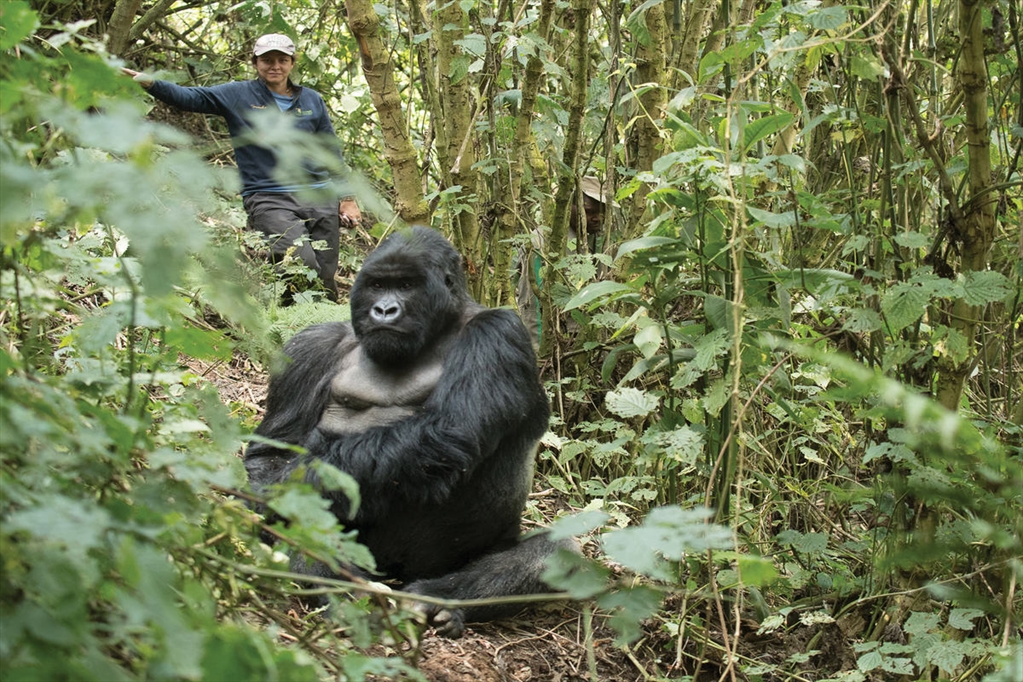Gorilla Power
By: Kelley Freund | Categories: Alumni Achievements

So Stoinski changed paths. With a goal of working with more social animals that she could see during the day, she studied psychology at Georgia Tech (President Ángel Cabrera was her statistics teaching assistant!) and eventually spent 14 years with Zoo Atlanta. For 12 of those years, she also worked for the Dian Fossey Gorilla Fund, which has its international headquarters at Zoo Atlanta and is the world’s largest and longest-running organization dedicated entirely to gorilla conservation and research. In 2014, she moved into the CEO role. Today, Stoinski oversees a staff of about 300 based in Africa and the group’s headquarters in Atlanta.
The Fossey Fund works with two of the four gorilla sub-species: mountain gorillas in Rwanda, of which there are only about 1,000 because of human pressures on their habitat, and Grauer’s gorillas in the Democratic Republic of the Congo, whose population is steeply declining due to poaching. In an effort to reverse these numbers, Fossey Fund staff spend their days in the forest, following gorillas, removing snares, and looking for illegal activity. They also collect information on aspects of gorilla life and ranging patterns. (Tech’s Center for Spatial Planning Analytics and Visualization has partnered with the Fossey Fund to map gorilla habitat.) Sometimes their research doesn’t just focus on gorillas.
"Gorillas are not the best indicators of the health of their habitat,” Stoinski says. “They’re intelligent, flexible, and have a broad diet—enabling them to adapt to changing environmental conditions, as long as they aren’t too severe. So we need to be monitoring the whole ecosystem, including indicator species like birds and amphibians, to understand how healthy that ecosystem is and what that means for the gorillas.”
For conservation efforts to be successful, Stoinski says it’s critical to have the engagement of the human community. The Fossey Fund works to address critical community needs such as food and water security and livelihood development and provide conservation education. In February, the Fossey Fund opened its first purpose-built home in Rwanda—the Ellen DeGeneres Campus, which includes classroom and lab spaces that will allow the organization to better teach the next generation of conservationists in Africa. Their work will be important, as what’s good for gorillas is actually good for humans, as well.
“These primates live in the equatorial forests of Africa, the second largest standing tropical rainforest,” Stoinski says. “By protecting the gorillas and their homes, we’re protecting more than gorillas—it’s ultimately important for the survival of our own.”


